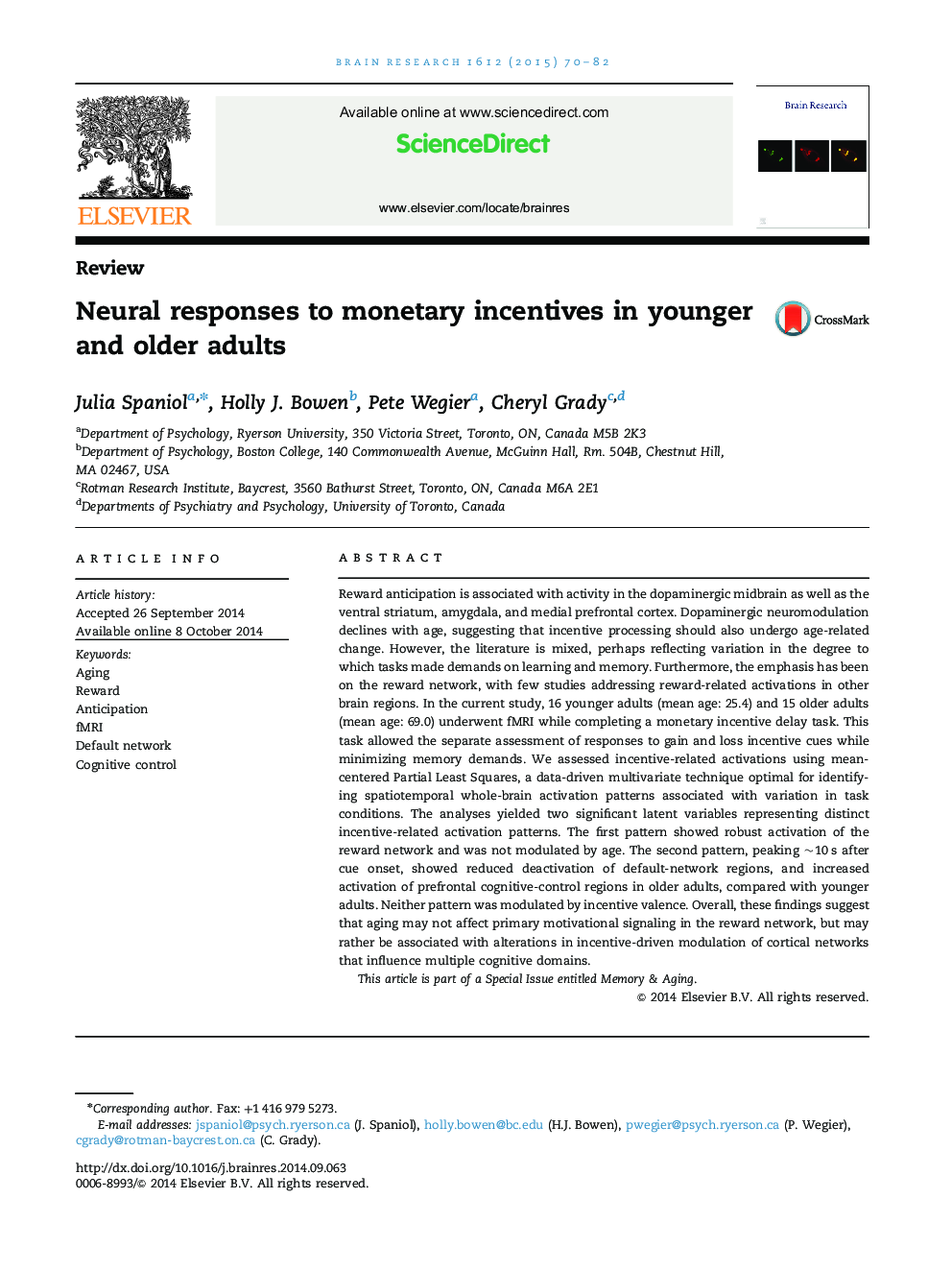| کد مقاله | کد نشریه | سال انتشار | مقاله انگلیسی | نسخه تمام متن |
|---|---|---|---|---|
| 6263081 | 1613827 | 2015 | 13 صفحه PDF | دانلود رایگان |
- We examine incentive processing in healthy younger and older adults.
- Activation of the reward network shows no age difference.
- Default network and cognitive-control regions are more active in older adults.
- Neither pattern is modulated by incentive valence.
Reward anticipation is associated with activity in the dopaminergic midbrain as well as the ventral striatum, amygdala, and medial prefrontal cortex. Dopaminergic neuromodulation declines with age, suggesting that incentive processing should also undergo age-related change. However, the literature is mixed, perhaps reflecting variation in the degree to which tasks made demands on learning and memory. Furthermore, the emphasis has been on the reward network, with few studies addressing reward-related activations in other brain regions. In the current study, 16 younger adults (mean age: 25.4) and 15 older adults (mean age: 69.0) underwent fMRI while completing a monetary incentive delay task. This task allowed the separate assessment of responses to gain and loss incentive cues while minimizing memory demands. We assessed incentive-related activations using mean-centered Partial Least Squares, a data-driven multivariate technique optimal for identifying spatiotemporal whole-brain activation patterns associated with variation in task conditions. The analyses yielded two significant latent variables representing distinct incentive-related activation patterns. The first pattern showed robust activation of the reward network and was not modulated by age. The second pattern, peaking ~10Â s after cue onset, showed reduced deactivation of default-network regions, and increased activation of prefrontal cognitive-control regions in older adults, compared with younger adults. Neither pattern was modulated by incentive valence. Overall, these findings suggest that aging may not affect primary motivational signaling in the reward network, but may rather be associated with alterations in incentive-driven modulation of cortical networks that influence multiple cognitive domains.This article is part of a Special Issue entitled Memory & Aging.
Journal: Brain Research - Volume 1612, 1 July 2015, Pages 70-82
